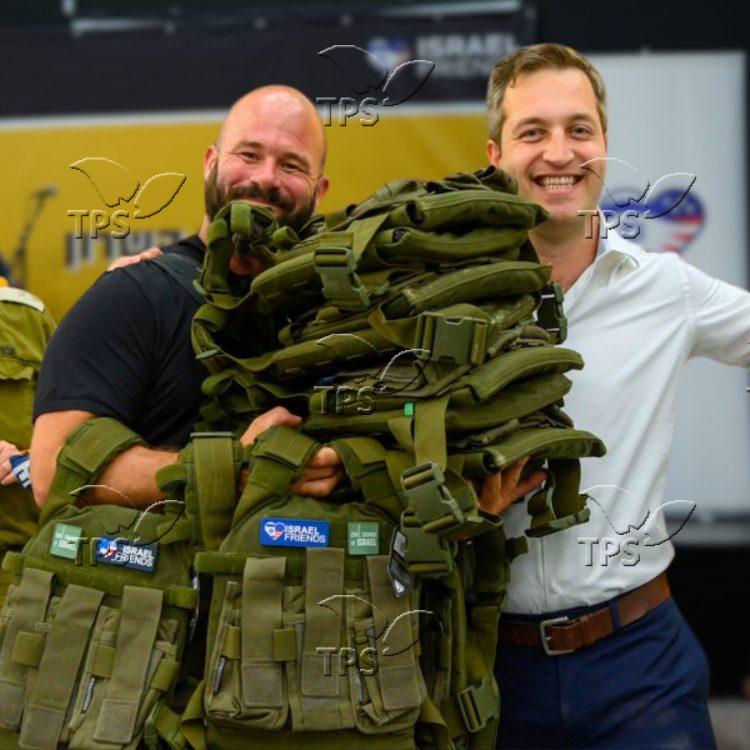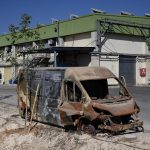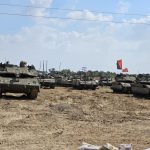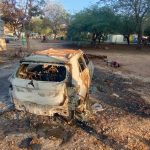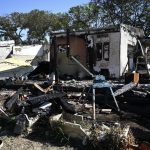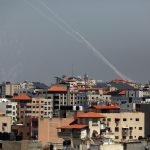Local Security Volunteers Gearing Up as Nahal Oz Residents Return
Jerusalem, 3 April, 2025 (TPS-IL) -- In the aftermath of Hamas’ October 7 attack, Israeli civilian security teams have taken on a higher profile, particularly in communities near the Gaza border.
“After the attack, it became clear that we could only rely on the local emergency squads. The communities that survived did so because of their teams’ determination,” Doron Kadosh, project manager for the rehabilitation of Kibbutz Nahal Oz, and a resident of nearby Kibbutz Nir Am told The Press Service of Israel.
“When residents returned to their homes after four months, the war was still very close. They could hear fighting at night, and children needed therapy to cope with the trauma,” Kadosh explained. “Security starts with seeing an organized team training to protect them and guards patrolling the area.”
Lessons were learned the hard way. The volunteer security teams, known in Hebrew as kitot konenut, were not adequately armed and were outnumbered by terrorists on October 7. More than 60 soldiers and 12 civilians were killed and another eight people were taken hostage.
Recognizing the needs, Israel Friends, a nonprofit organization founded after the October 7th attack, stepped in to provide essential equipment and support.
“When your team has the right equipment, people take pride in being part of the emergency squad. It projects resilience and security for the community,” Kadosh said.
Since its launch, Israel Friends has provided more than 500 tons of equipment worth $45 million, including vests, helmets, first aid kits, drones, and thermal cameras.
“We look for where there’s a need that has to do with life and death—safety, security, mental health,” Kyle Blank, CEO of Israel Friends, told TPS-IL. “Eventually, everything will get taken care of by the Israeli government, by the army, but the question is at what speed.”
For communities like Nir Am and Nahal Oz, located just minutes from the border, speed is critical.
“It’s not like any other volunteer group of guys,” Blank told TPS-IL. “These are people with families, children, and jobs who, despite having no obligation, give their time and risk their lives to protect their communities. They are the backbone of our security and resilience.”
Blank is proud of his organization’s ability to quickly cut through bureaucracy.
“When we hear that a community needs something, we assess our priorities and abilities… When we say yes, we show up that day or that week,” Blank said. When Israel Friends learned that Kibbutz Nahal Oz’s security team couldn’t see properly at night, the nonprofit delivered thermal cameras within 24 hours.
“Suddenly, morale changes,” Kadosh notes. “The soldiers guarding the kibbutz can now see better, making them more efficient and confident in their defense.”
In addition to their work providing essential resources, Israel Friends has expanded to include mental health support in partnership with Resilience Centers, offering immediate psychiatric assistance for PTSD, especially in frontline communities. However, a major challenge in community safety remains training.
“We need to standardize training for every security squad member,” Blank insisted. “These volunteers operate in stressful, urban environments where communication is more complicated than in the army. Without proper training, they won’t be ready when needed.”
He also stressed the need for greater awareness.
“We need to ensure the public knows these teams need the same resources, training, and support as the army and police,” he said.
Before the war, Kibbutz Nahal Oz had around 480 residents. Today, according to Kadosh, the number living there is 20, including children.
And The night time security team is limited because not enough residents have returned, he added.
“In the meantime the army is providing the [security team] with a security force to supplement it,” Kadosh said.

